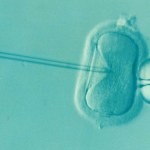This week saw another attack against Israel and we shouldn’t be surprised. Hezbollah, another terrorist organization launched drones and attacked Israeli military sites. Hezbollah has been at odds with Israel since it’s withdrawal from Lebanon in the 80s.

Along with Hamas, Hezbollah has been at war with Israel over the boundaries of the land God sent Abraham to settle a new nation (Genesis 12:1-9.) The Abrahamic covenant is the origin of Israel and God’s promises to His people.
- Nationhood
- Blessings
- Protection
- Greatness
Israel views Abraham as the father of the Jewish faith. It was Abraham who first obeyed God’s call to leave the corrupt land and faith of his father. God commanded Abraham and his descendants to be different from the fallen world they lived in because they belonged to God.
Abraham was found to be faithful to God and because of that, he was accounted as righteous (Genesis 15 6-7, Romans 4:1-22, Hebrews 11:8-10.) God’s relationship to Abraham was more than a simple promise, it was a covenantal relationship.
Covenant
As Westerners, we equate covenants with promises, but they aren’t the same. A covenant is defined as, “A formal, solemn, and binding agreement between two parties.” Covenants aren’t one-sided promises; they are commitments that have consequences between two or more parties.

In ancient times covenants were contracts that guaranteed specific actions and could result in rewards, or punishments if they are broken.
So, it is easy to see why God’s people value their covenant with God. Most Christians know and understand our Bible is composed of the Old Covenant and the New Covenant.
The Bible has a lot to say about the covenants of God’s people (Matthew 26:28, Luke 22:20, 2 Corinthians 3:6, Galatians 3:16, Ephesians 2:12, Hebrews 8:7.) The Apostle Paul reminded the early church of the Jewish covenant with God.
Bᵊrîṯ
Because of God’s covenant with Abraham, covenants are a common practice in Israel and in Judaism (Leviticus 2:13, Exodus 34:28, Deuteronomy 4:13, Psalm 103:17-18, Jeremiah 31:33.)
The most common Hebrew word in the Old Testament for covenant is bᵊrîṯ and it can also mean, “Alliance, treaty, or pledge,” depending on the context it is used in.
The Abrahamic covenant or Brit Bein HaBetarim is a pledge between God, Abraham and his descendants. It came with guaranteed rewards and punishments for Abraham.
- Descendants
- Land of his own
- Blessings
- Redemption
- Favor among the nations
The New Testament begins with the genealogy of Jesus and identifies Him as a descendant of Abraham (Matthew 1:1.) Matthew not only begins the New Testament, it begins the new covenant which fulfills the old covenant to God’s people.

Jesus frequently acknowledges God as His Father, this not only validates His deity, but His connection to Abraham, the father of the Jewish faith. The Jewish people viewed God as the father of all creation since He spoke everything into existence (Genesis 1:1-28.)
The New Testament writers often share about Jesus’s relationship with His Father (Matthew 6:6-9, Luke 11:1-54, John 17:1-26.)
Since man is created in the image of God, Judaism emphasizes the role of fatherhood (Deuteronomy 8:9, Psalm 103:13, and Proverbs 32:22.) God’s people are commanded to honor both their father and mother, because that covenant comes with a blessing as well (Exodus 20:12, Matthew 15:4, Ephesians 6:2.) We should honor our fathers every day, not just on Father’s Day!
Father’s Day
As we celebrate Father’s Day today, we remember their sacrifices and the examples they’ve made and displayed over the years. Americans have celebrated Father’s Day since April 19, 1910.
Jesus honored His Father by glorifying God and doing His will (Mark 14:36.) Abraham was willing to sacrifice his son out of obedience to God (Genesis 22:1-18.) Both of them demonstrate the best way we honor our fathers.

- Love
- Respect
- Obey
- Listen
The relationship between a father and child is symbiotic. Children are commanded to honor their parents. Fathers are charged with providing and caring for their children. Fatherhood comes with both rewards and punishments as part of the bᵊrîṯ!













